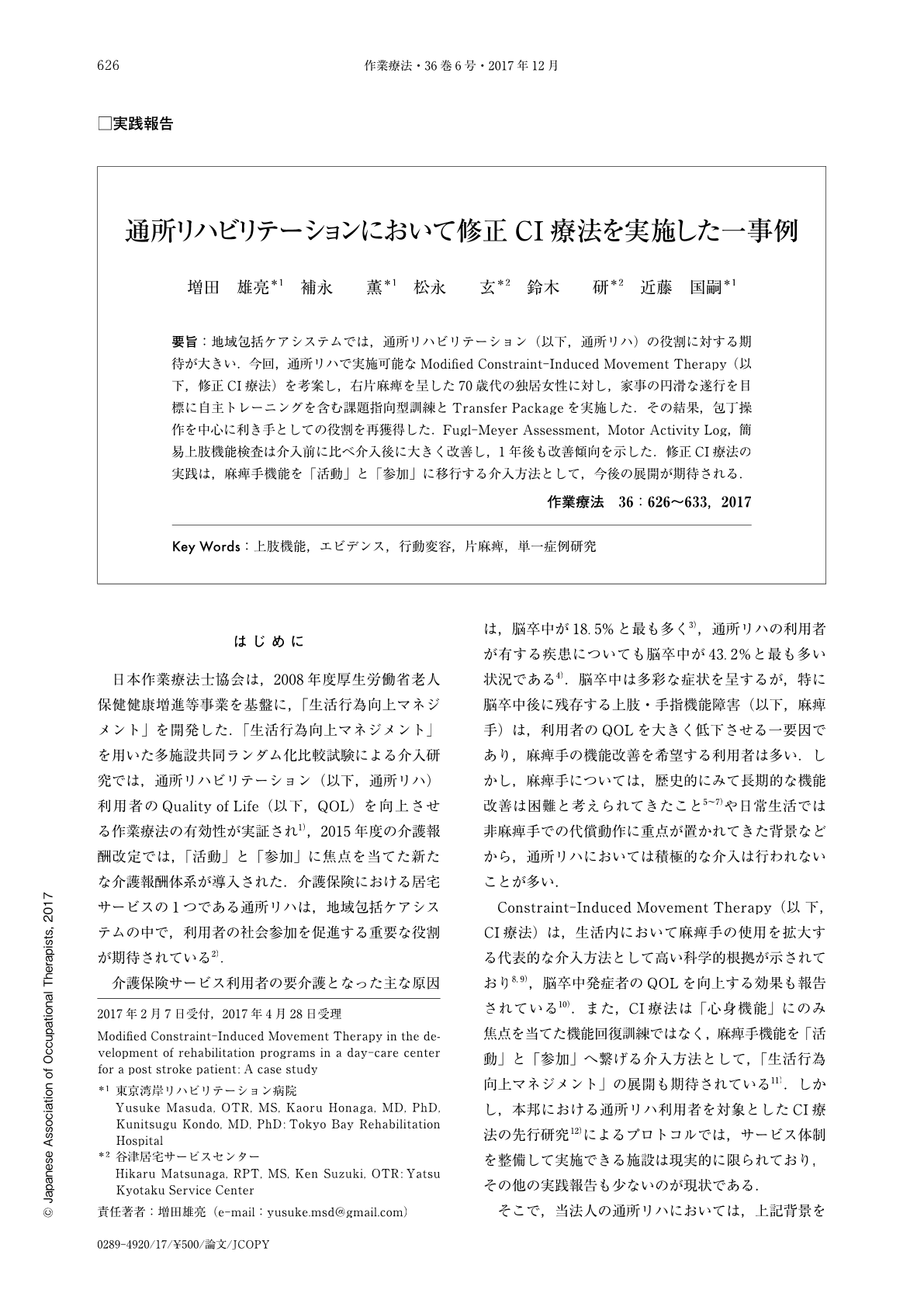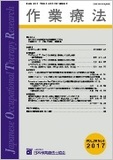Japanese
English
- 販売していません
- Abstract 文献概要
- 1ページ目 Look Inside
- 参考文献 Reference
- サイト内被引用 Cited by
要旨:地域包括ケアシステムでは,通所リハビリテーション(以下,通所リハ)の役割に対する期待が大きい.今回,通所リハで実施可能なModified Constraint-Induced Movement Therapy(以下,修正CI療法)を考案し,右片麻痺を呈した70歳代の独居女性に対し,家事の円滑な遂行を目標に自主トレーニングを含む課題指向型訓練とTransfer Packageを実施した.その結果,包丁操作を中心に利き手としての役割を再獲得した.Fugl-Meyer Assessment,Motor Activity Log,簡易上肢機能検査は介入前に比べ介入後に大きく改善し,1年後も改善傾向を示した.修正CI療法の実践は,麻痺手機能を「活動」と「参加」に移行する介入方法として,今後の展開が期待される.
Constraint-Induced Movement Therapy is useful rehabilitation for post stroke patients. However, due to the difficulty of applying this method in the Japanese nursing insurance system, we made the modified Constraint-Induced Movement Therapy (mCI) system, which could be used in day-care centers. This case report shows the effectiveness of mCI for day-care patients. We applied the mCI to a 70-year-old woman who suffers from right hemiparesis after stroke and came to the day-care center after being discharged from the hospital. She participated in the mCI program for two months, which consisted of Task-Oriented Training (TOT) with Transfer Package (TP) (1.5 hours/day, 2 days/week). We assessed her using the Fugl-Meyer Assessment, Motor Activity Log and Simple Test for Evaluating hand Function before and after intervention. Immediately after intervention, each score improved significantly, exhibiting continuous improvement up to 1 year after intervention. The mCI had her paretic hand participate in activities of daily living, which improved practical use of her paretic hand. This case report suggests that the mCI in day-care centers might be effective for the hemiparetic patients with stroke.

Copyright © 2017, Japanese Association of Occupational Therapists. All rights reserved.


